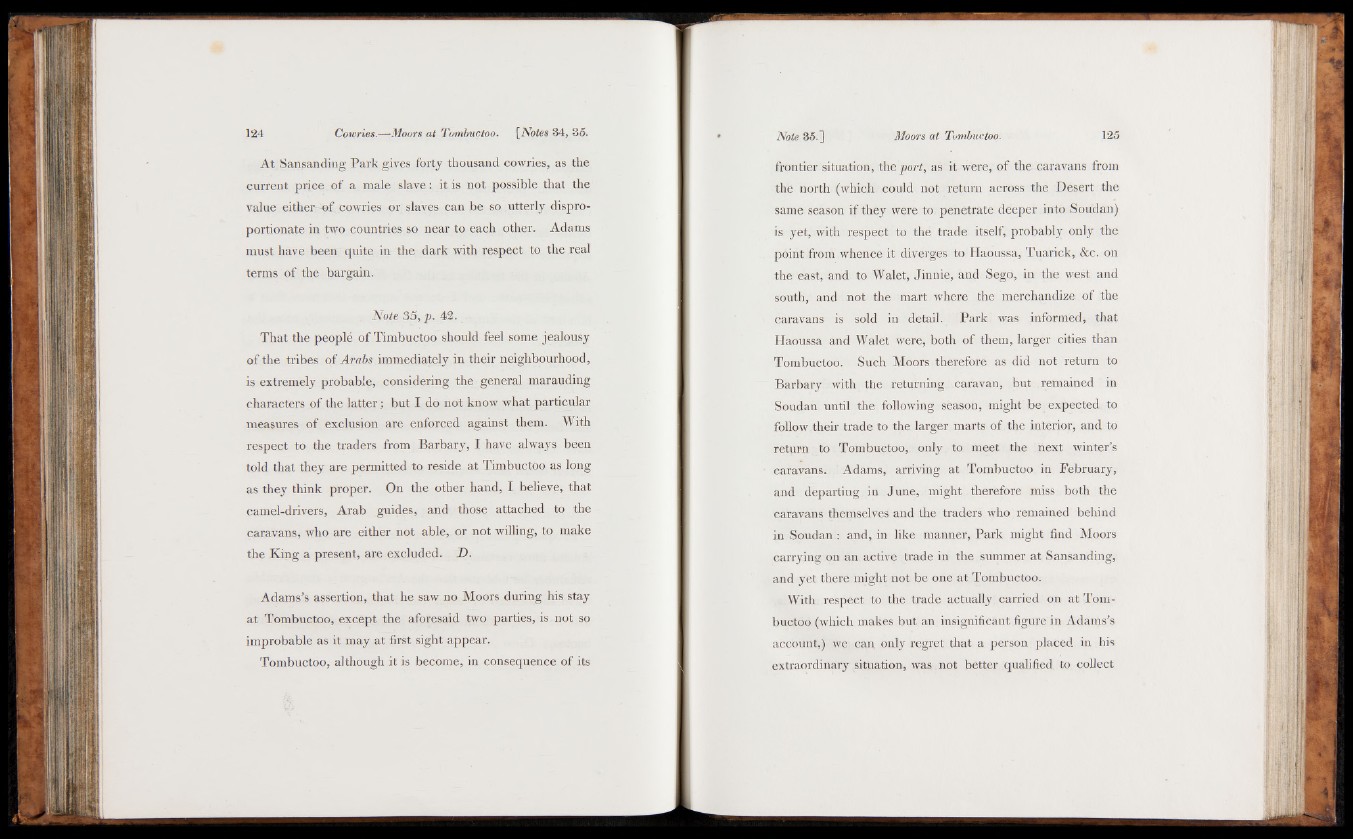
124 Cowries.—Moors at Tombuctoo. [Notes 84, 35.
At Sansanding Park gives forty thousand cowries, as the
current prjce of a male slave: it is not possible that the
value either-ef cowries or slaves can be so utterly disproportionate
in two countries so near to each other. Adams
must have been quite in the dark with respect to the real
terms of the bargain.
Note 35, p. 42.
That the people of Timbuctoo should feel some jealousy
of the tribes of Arabs immediately in their neighbourhood,
is extremely probable, considering the general marauding
characters of the latter; but I do not know what particular
measures of exclusion are enforced against them. With
respect to the traders from Barbary, I have always been
told that they are permitted to reside at Timbuctoo as long
as they think proper. On the other hand, I believe, that
camel-drivers, Arab guides, and those attached to the
caravans, who are either not able, or not willing, to make
the King a present, are excluded. D.
Adams’s assertion, that he saw no Moors during his stay
at Tombuctoo, except the aforesaid two parties, is not so
improbable as it may at first sight appear.
Tombuctoo, although it is become, in consequence of its
Note 85. j Moors at Tombuctoo. 125
frontier situation, the port, as it were, of the caravans from
the north (which could not return across the Desert the
same season if they were to penetrate deeper into Soudan)
is yet, with respect to the trade itself, probably only the
point from whence it diverges to Haoussa, Tuarick, &c. on
the east, and to Walet, Jinnie, and Sego, in the west and
south, and not the mart where the merchandize of the
caravans is sold in detail. Park was informed, that
Haoussa and Walet were, both of them, larger cities than
Tombuctoo. Such Moors therefore as did not return to
Barbary with the returning caravan, but remained in
Soudan until the following season, might be expected to
follow their trade to the larger marts of the interior, and to
return to Tombuctoo, only to meet the next winter’s
caravans. Adams, arriving at Tombuctoo in February,
and departing in June, might therefore miss both the
caravans themselves and the traders who remained behind
in Soudan : and, in like manner, Park might find Moors
carrying on an active trade in the summer at Sansanding,
and yet there might not be one at Tombuctoo.
With, respect to the trade actually carried on at Tombuctoo
(which makes but an insignificant figure in Adams’s
account,) we can only regret that a person placed in his
extraordinary situation, was not better qualified to collect